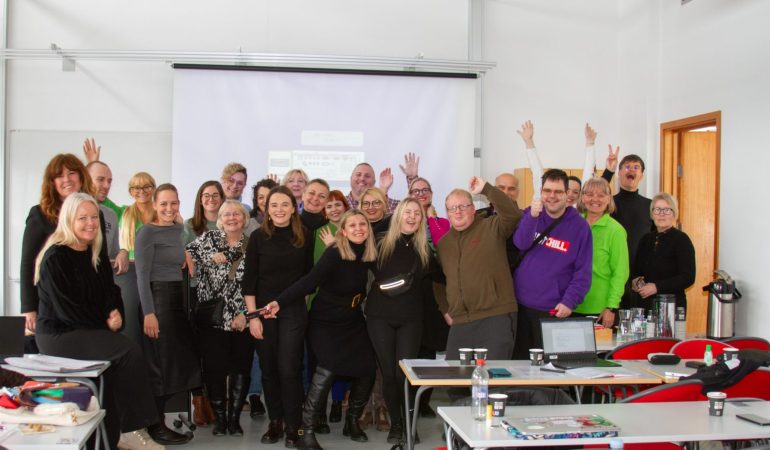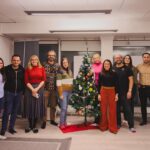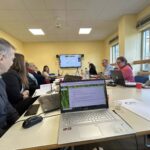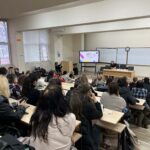Project Atollo – European consortium launches ground-breaking project to build digital learning environments for students with special educational needs
With the ambitious intention of transforming digital education, a consortium consisting of partners from Croatia, Bulgaria, Austria, Germany, Iceland, Norway, Ireland and Australia, including leading EdTech companies, universities and educational institutions, has announced the launch of Project Atollo. Officially titled ‘Building Digital Learning Environments for Learners with Special Educational Needs’ (DigiEdu4SEN), the initiative will create new opportunities through the development of innovative, inclusive digital materials and tools tailored to the individual needs of learners with special educational needs.
The project, which will run for 32 months, is supported by the European Education and Culture Executive Agency and involves an international partnership aiming to make a systemic change in digital education for learners with special educational needs (SEN). Using a user-centred design approach, the Atollo project aims to ensure that digital materials are accessible, engaging and effective for a range of disabilities and difficulties, promoting the creation and operation of inclusive learning environments in which all learners feel comfortable.
At the heart of the project’s mission is the collaborative development of an innovative toolkit for digital education. This multi-faceted resource will offer advice, guidance and good practice for educators, policy makers and institutions to use as a guide when creating and using digital learning materials for children with SEND. Through in-depth analysis, pilot testing and skilled evaluation, the consortium will refine these materials, ensuring they meet the highest standards of quality and inclusion.
The Atollo project also focuses on building the capacity of educators by providing them with the tools and knowledge to use digital materials effectively in their work. This initiative offers not only the creation of digital content, but also a sustainable network of stakeholders committed to advancing inclusive education worldwide.
Expectations for the outcomes of the Atollo project are high, and include a comprehensive set of digital learning materials, an inclusive digital education toolkit, and improved capacity among teachers and educational institutions. The project’s innovative approach and focus on inclusion promises to set new standards in digital education for learners with special needs, having a significant impact on participating schools and the wider educational context.
Think Tank workshop in Iceland The Atollo project team gathered in Iceland for a major Think Tank workshop and meeting of
partners hosted by the University of Iceland – Faculty of Education, from 10 to 12 April 2024. This strategy meeting in Reykjavik was not just a meeting to discuss the development of the project, but also an in-depth presentation of best practice examples of the international partnership involving Croatia, Bulgaria, Austria, Germany, Norway, Australia, Ireland and Iceland. Key highlights of the sessions were the presentation of digital education models, good practices from different countries and workshop sessions aimed at improving the framework for inclusive digital education. The meeting highlighted the commitment of partners to work together to prepare activities and next steps towards creating a more inclusive digital learning environment. The event was marked by productive discussions and study visits to special schools in Iceland, providing practical insights into the application of digital education for learners with special educational needs.
“I am so excited that we have started work on this project. The project brings together different stakeholders in the education sector, each bringing their own wealth of experience in educating children with special educational needs
. The project has very ambitious goals, but the core idea is about building the founding principles for a modern, inclusive, digital learning environment tailored for students with special educational needs. It is important to mention that we at the University of Iceland have now decided to focus our project on learners with intellectual disabilities. Including this group is a really important
decision, as in the past these people have been neglected in research related to their education and face significant barriers in the
education system.”
Kristina Ferrara Blaskovic, Profil Klett d.o.o. The University of Iceland had the great pleasure to
host the first meeting of the participants of the Atollo project, an Erasmus+ collaboration with 24 representatives from EdTech companies, universities, special schools and education Partners met at the Faculty of Education in Stakkálir between 10-12 April 2024.
The best practices presented from each country provided a wealth of information and provided guidance for creating a data analysis framework and action plan. The curricula in all partner countries will be analysed, as well as the competences being created in the subjects of ICT and mathematics, and digitalisation in general. We discussed different approaches to teaching and learning for students with special educational needs and visited special schools in Iceland. We are looking forward to future steps in creating teaching materials and guidelines for work.
Skúlína Hlíf Kjartansdóttir and Anna Magnea Hreinsdóttir, University of Iceland “The essence of our mission lies not only in creating inclusive
digital educational materials, but also in ensuring that the results of our activities reach educators, policy makers and institutions around the world,” says Jeff Sheridan, Matrix Internet, who is leading Work Package 5 on communication and dissemination. “This week’s Think Tank workshop and partner meeting in Iceland was a pivotal moment for us: it was where we developed a strategy to amplify our impact and ensure that our collaboration will bring about systemic change in digital education for learners with special educational needs. “Matrix Internet is committed to not only facilitating dialogue within the consortium, but also to sparking a more inclusive conversation that supports the cause of inclusive education globally.”



